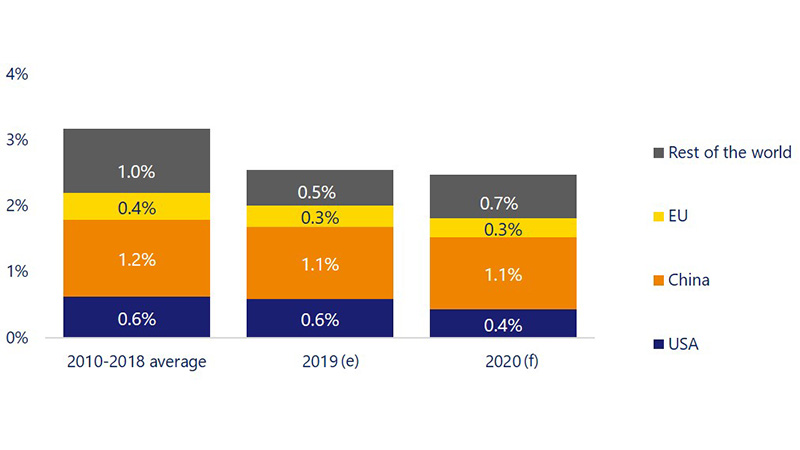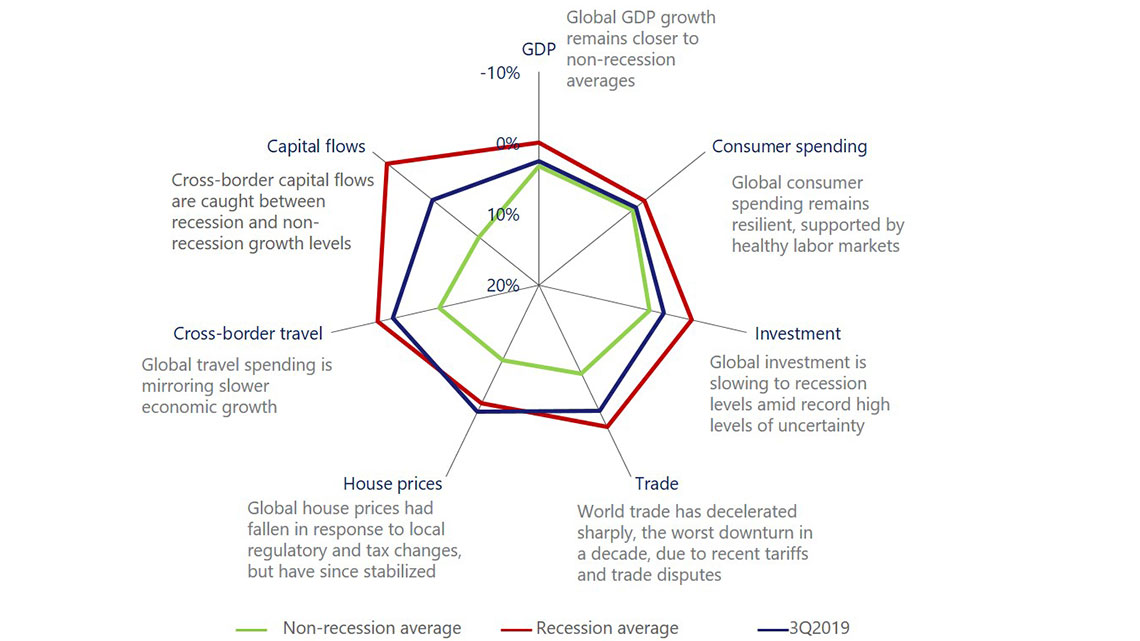December 18, 2019 – Buffeted by trade wars and geopolitical events such as Brexit and unrest in Hong Kong, the global economy this year is set to grow at its weakest rate since 2009. While most forecasters are expecting this slowdown to be temporary, warning signs of a possible U.S. recession began appearing this year, raising concerns that a longer, broader global downturn could be coming.
These concerns are likely misplaced. Even if the current U.S. economic expansion—the longest on record, spanning over 10 years—ends in recession, the global economy would not necessarily follow suit. The U.S. no longer drives the global economy the way it once did. Today, the U.S. accounts for only one-quarter of global output (from one-third a decade ago). Moreover, many domestic factors that depressed growth in large markets such as Mexico, Brazil, Turkey, Russia and others could reverse next year, allowing global growth to stabilize and possibly even begin to recover.
Highlights of this report:
- Recessions are about more than just changes in GDP
- Most of the key measures of global economic activity are still below recession levels
- Do recessions even matter?



